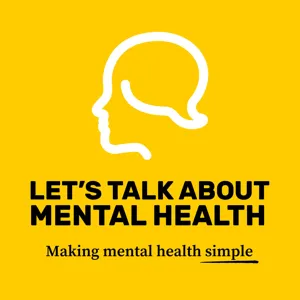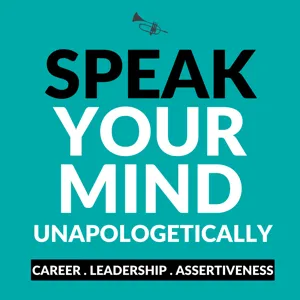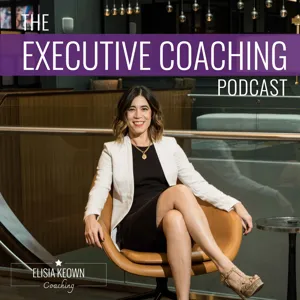Podcast Summary
Understanding the stress response cycle: Focusing on completing the stress response cycle can help manage stress effectively, leading to a more peaceful and productive life
Stress is a physiological cycle with a beginning, middle, and end, and completing this cycle can help you feel better, even if the stressor remains unchanged. Stress, whether from a lion chasing us or a pile of laundry, triggers the same response in our bodies. It's essential to understand this and not wait for the completion of tasks or the removal of stressors to feel calm. Instead, focusing on completing the stress response cycle can help us manage stress effectively. This perspective can lead to a more peaceful and productive life. So, next time you feel overwhelmed by tasks or stressors, remember that completing the stress response cycle can help you feel better, even before the situation changes.
The importance of completing the stress response cycle: A 20-second hug from someone trusted can decrease heart rate and blood pressure, completing the stress response cycle and reducing stress
Managing stress goes beyond just eliminating stressors. The body's stress response cycle needs to be completed in various ways, including physical activity, sleep, and human connection. A simple yet effective way to complete this cycle is through a 20-second hug from someone you trust. This physical connection triggers a decrease in heart rate and blood pressure, making you feel safe and reducing stress. Human beings are partially social creatures, and touch is as essential for our mental health as food is for our physical health. So next time you're feeling overwhelmed, remember the power of a long, loving hug.
Stigma around emotional connection and support: Recognize emotional stressors, differentiate from response, and seek healthy coping methods like connection and self-care
Our cultural emphasis on independence and self-sufficiency can lead to a stigma around expressing the need for emotional connection and support. This can make it difficult for individuals to acknowledge and manage their emotional stressors. The stress response cycle, designed for handling short-term physical threats, floods the body with hormones like adrenaline and cortisol, preparing us for action. However, in today's society, these stressors are often emotional and prolonged, and the body's response can lead to negative health effects if not managed properly. It's essential to recognize the difference between the stressor and our response to it and seek out healthy ways to cope with emotional stress, such as connecting with others and practicing self-care.
Managing stress through physical activity or affection: Physical activity or affection can help manage stress by signaling to your body that the stressor has passed and you are safe
Our bodies respond to stressors in much the same way as they would to a physical threat, like a lion. When we're faced with stressors in modern life, such as work, traffic, or family issues, our bodies go into a fight-or-flight response. This response can be managed through physical activity or affection. Physical activity is the most efficient way to communicate to your body that you have escaped the stressor and are now safe. This can be as simple as jumping up and down or dancing it out in your living room. The important thing is that your body receives the message that the stressor has passed. Affection is the next most efficient way to manage stress. When we connect with someone we care about, our bodies recognize this connection as a sign of safety. This can be as simple as giving or receiving a hug. The key is that we feel a sense of emotional safety and security. So, when you're feeling stressed, try running, dancing, or giving someone a hug. These simple actions can help your body recognize that the stressor has passed and that you are now in a safe place.
Engage in activities for stress completion: Physical affection, creative self-expression, and sleep help complete the stress response cycle, promoting well-being and preventing illness.
Managing stress involves more than just eliminating stressors. The body continues to hold stress even after the stressor is gone, making it essential to engage in activities that signal safety and completion of the stress response cycle. Physical affection and creative self-expression are two examples of such activities. The former provides a sense of security, while the latter offers an outlet for emotions, allowing them to leave the body and preventing illness. Sleep is another crucial component in managing stress, as it enables the body to repair damage, finish the stress response cycle, and integrate new memories. Ultimately, human beings are designed to oscillate between rest and action, making it essential to embrace the natural ebb and flow of stress and well-being.
Discovering personal recovery from burnout: Explore self-care and caring for others to overcome burnout, as one-size-fits-all solutions don't apply to everyone.
The path to recovery from burnout is not a one-size-fits-all solution. If sleep isn't an option for you, find another way to complete your personal cycle. The seven ways mentioned are not prescriptive but rather a starting point to discover what works best for you in your current life. Another powerful idea from the discussion is that the cure for burnout is not just self-care but also caring for each other. This perspective challenges the traditional notion of human beings only being responsible for their own well-being and instead emphasizes the importance of supporting others. By doing so, we can create a world where everyone is a human being, expressing their full humanity, rather than a human giver, sacrificing their own needs for others. This approach can lead to a more balanced and harmonious society.
Creating a supportive community for compassion and self-care: Surround yourself with like-minded individuals, spread positivity, and sign up for the Friday Five email for a weekly dose of positivity.
Creating a supportive community where everyone can give and receive compassion can lead to a fulfilling and balanced life. When we give too much, we can surround ourselves with like-minded individuals who share similar values. This system ensures no one is left behind, and everyone is held in the presence of compassion. The speakers also mentioned the importance of spreading positivity and sharing valuable resources with others. They encouraged listeners to sign up for the Friday Five email, which offers a weekly dose of positivity through short articles, quotes, and research. Overall, the conversation emphasized the importance of community, compassion, and self-care. By prioritizing these aspects of life, we can create a more fulfilling and balanced existence. So, press subscribe, listen to the full conversation, and sign up for the Friday Five email to receive a weekly dose of positivity and feel-good vibes.






